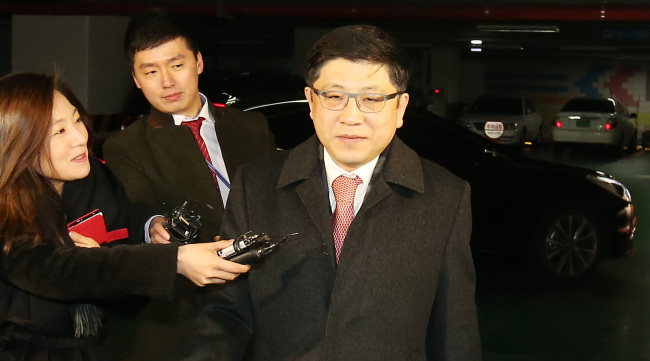South Korean prosecutors on Wednesday officially launched a special investigative unit that will probe large-scale corruption cases under the supervision of prosecutor general Kim Soo-nam.
The temporary unit, under the Anti-corruption Department at the Supreme Prosecutors’ Office, is expected to crack down on possible graft in the public sector, particularly involving large-scale state projects. Reportedly, two teams of the unit will each deal with crimes by politicians and civil workers, as well as by entrepreneurs, although the details have not been officially released.
President Park Geun-hye instructed her Cabinet earlier this month to set up infrastructure to “preemptively monitor and spot elements of corruption,” which she said will result in more transparent state-led projects.
Prime Minister Hwang Kyo-ahn, her second-in-command, subsequently announced a state-led anticorruption drive that encompasses real-time monitoring of large-scale projects and enhanced audits of government organizations.
The new unit consists of 30 members and includes 11 prosecutors, but additional members can be dispatched when required.
It will be headed by seasoned prosecutor Kim Ki-dong, who is most noted for heading a joint government investigative team against arms procurement corruption from 2014-15.
 |
| Prosecutor Kim Ki-dong |
But an investigative unit that directly answers to the prosecutor general has sparked concerns over its potential political bias.
The previous investigative unit with a similar chain of command, the Central Investigation Department, is now defunct. As the president has the authority to appoint the prosecutor general, observers have said that an organization that is ordered directly by the top prosecutor can be influenced by the incumbent administration.
Opposition lawmakers — including Rep. Park Young-sun of The Minjoo Party of Korea — had accused the former President Lee Myung-bak administration of using the department to target his predecessor Roh Moo-hyun, which is said to have led to his suicide in 2009.
The National Assembly agreed to abolish the department in 2011 as part of reforms, and President Park formally shut it down in 2013.
Justice Minister Kim Hyun-woong told media that he will pay special attention to ensure that the new unit will remain politically impartial and fair.
By Yoon Min-sik (minsikyoon@heraldcorp.com)

